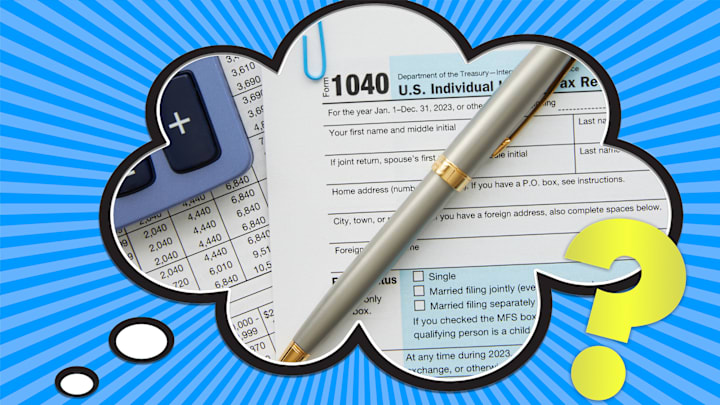While death and taxes may be the only true certainties in life, somehow Tax Day always seems to sneak up on us. This year, it falls on Tuesday, April 15, which means the deadline is fast approaching and the last weekend before it’s time to file for the year is coming up. But what happens if tax season slips your mind, and you just don’t file anything? Below, we break down what you can expect—and why you really don’t want to make this kind of mistake.
- You Forget to File Your Taxes—Now What?
- What if You Don’t Owe Any Money in Taxes?
- You Don’t Want To Pay Your Taxes—So, How Long Before the IRS Comes After You?
You Forget to File Your Taxes—Now What?
If you already know you’re not going to get your taxes done by Tax Day, you can file for an extension. You can get an extra six months —up to Wednesday, October 15—to file federal taxes by filling out a form and estimating (and paying) how much you’ll owe for that year.
While you may be granted a filing extension, you are still required to pay your taxes by the regular due date: If you don’t hand the IRS at least an estimated amount by April 15, you’ll be charged a failure-to-pay penalty, and be charged 0.5 percent of the unpaid taxes you had for each month that the total balance is unpaid (up to 25 percent).
If you don’t file any federal income tax return at all by mid-April, you’ll be slapped with a failure-to-file fine—5 percent of the amount you already owe for each month you’re overdue, up to 25 percent. The longer you don’t pay, the higher your tab with the IRS gets: For each month your tax return doesn’t show up and you don’t pay anything, the combined maximum penalty is 5 percent (meaning 4.5 percent for the late filing and 0.5 percent for the late payment) of the tax owed for each month your return is overdue, up to 25 percent.
Additionally, if you file your return more than two months late without a good excuse, you’ll pay a minimum penalty fee of $485 for returns that were due after Sunday, December 31, 2023, or the entire amount of tax owed, if that total is less than $485.
What if You Don’t Owe Any Money in Taxes?
If you do a little math, you’ll see that it usually pays to go ahead and file your return or get an extension, even if you can't pay your taxes immediately.
If you don't owe any taxes because your employer withheld more than necessary and you are due to get a tax refund, you have three years to file your taxes before the IRS will keep that money. So as long as you get around to it by April 2028, you'll still get that money back. After those three years, the IRS will keep your whole refund, and it won’t count toward next year’s tax bill, either.
You Don’t Want To Pay Your Taxes—So, How Long Before the IRS Comes After You?
If your penalties and back taxes add up to more than $25,000, someone from the IRS is going to come knocking at your door. In 2016, the IRS investigated 206 people for regularly failing to file their taxes, and put 159 people in jail for an average of three years. (Remember, it was the IRS that took down Al Capone.)
If you are a chronic non-filer and don’t file your taxes even after warnings from the IRS, the government will go ahead and estimate what you owe, calculating what’s known as a substitute for return. This total doesn’t include deductions that you might have been eligible for, meaning that if you let the government do your taxes for you, you’ll probably end up with a heftier bill.
And that's just at the federal level. While states vary on how they treat people who don’t file their taxes, they slap penalties and interest on late returns and payments, too. Some states will even take your federal tax refund to pay your state back taxes. However, in many states, being approved for a federal tax extension also gets you an automatic extra six months on your state income taxes.
The lesson: If there’s any chance you’ll be late filing your return this year, ask for an extension ASAP.
Have you got a Big Question you'd like us to answer? If so, let us know by emailing us at bigquestions@mentalfloss.com.
Read More Big Questions Below:
A version of this story was first published in 2016 and has been updated for 2025.
